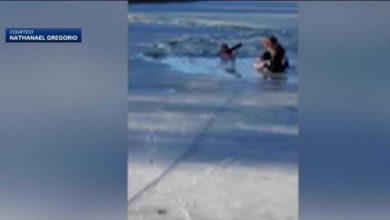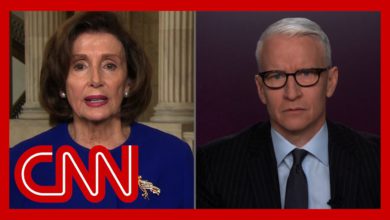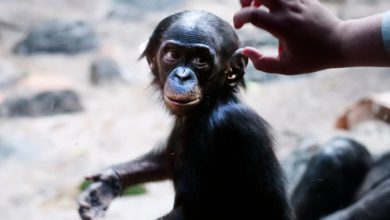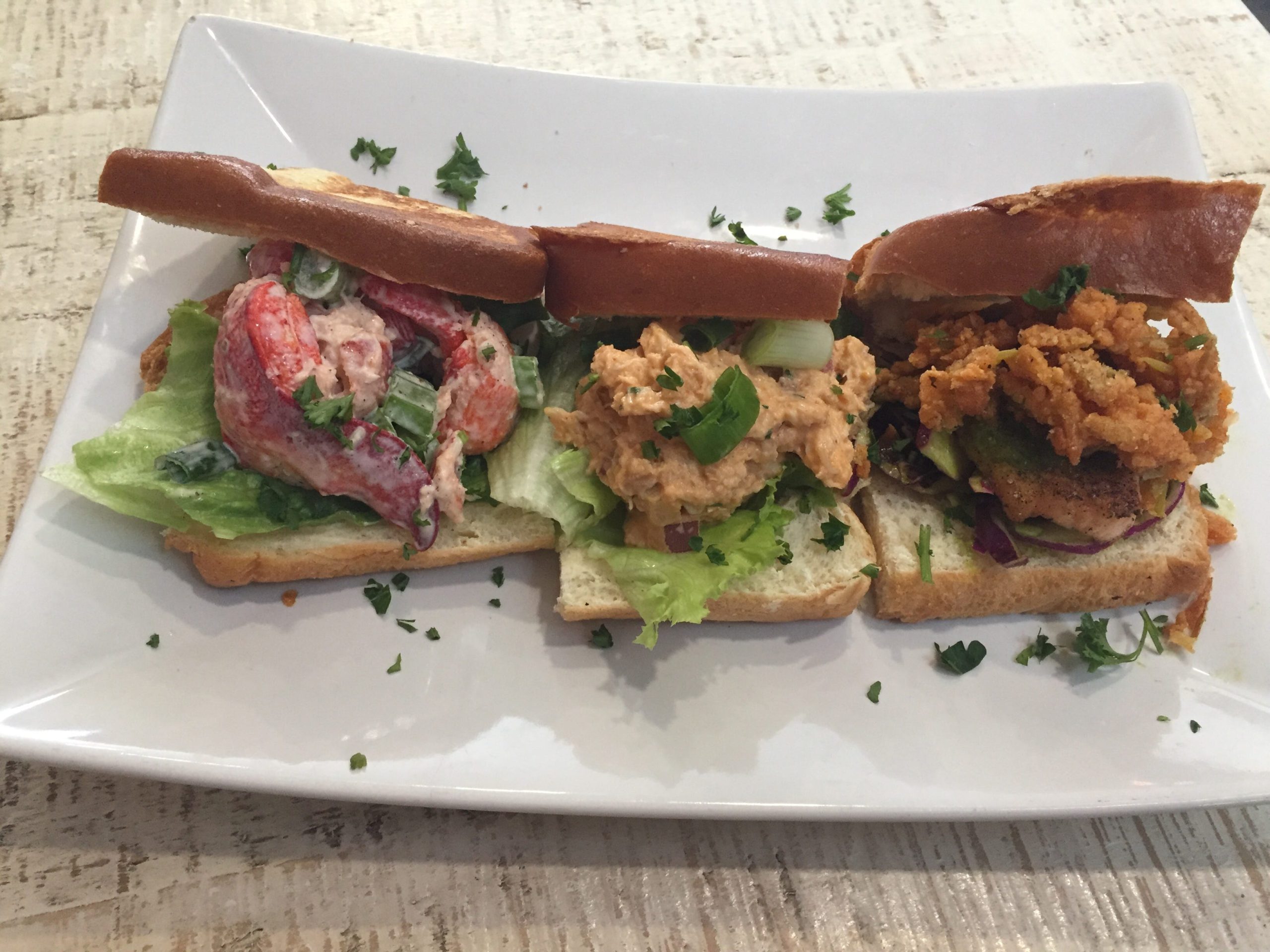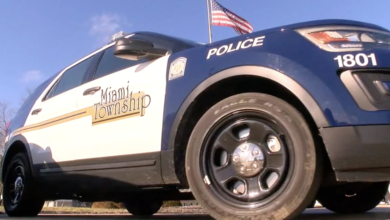For years those visiting the University of Cincinnati bookstore or neighboring DuBois on Calhoun Street could buy a jersey of notable Cincinnati Bearcats and sport them to a game.
While the numbers were familiar, there were never any names on the back as the NCAA prohibited amateur athletes from capitalizing on their fame. In the meantime, universities could profit off of the sale of the jerseys.
This is all about to change.
With the NCAA now allowing name, image and likeness opportunities for college athletes, a player can now negotiate their own deals or work with an agency partnering with a school.
That's where UC's arrangement with the Brandr Group comes in. The sports marketing agency located in Ponte Vedra, Florida, south of Jacksonville, has teamed up with the university in a group licensing initiative for Bearcat athletes in 18 varsity sports.
With demand high coming off the football team's appearance in the College Football Playoff, UC's athletes can now profit from their names using official school trademark and logos.

"We are excited to partner with Brandr to offer our student-athletes more opportunities to profit off their name, image and likeness," UC athletic director John Cunningham said. "Group licensing with the leader in this space will open up plenty of new avenues for our Bearcats to earn revenue, while also providing our fans with even more ways to purchase officially-licensed merchandise."
Last summer, Cunningham launched UC's Impact name image and likeness readiness program with Opendorse Ready and Cincinnati's own Empower creative agency. Opendorse connects brands to prospective student-athlete endorsers, while Empower has provided potential Bearcat endorsers coaching to leverage their athletic talents.
The agreement with the Brandr Group allows them to assist in group licensing opportunities. However, individual athletes aren't restricted or limited in their individual rights.
More:Sprinter Caisja Chandler becomes first UC student-athlete to pocket NIL endorsement
More:Details of UC guard Jeremiah Davenport's NIL brand ambassador deal with The Job Center
"They need at least three players from any one team or a total of six student-athletes across the entire athletic department to be able to be considered as a group from Cincinnati," UC Director of Trademark and Licensing Martin Ludwig said.
Ludwig's job just got more interesting. Where jerseys at many schools used to have No. 1 or the coincidental number of the starting quarterback, now a fan can get a personalized jersey so long as the player was part of the group licensing deal. Other items can and will be added as the process evolves.
For example, the Brandr Group (TBG) recently set up a program with North Carolina where for a subscription fee, a Tar Heels fan could order personalized jerseys. The product is delivered to their doorstep and profits are distributed to the participating players.
The Brandr Group CEO is Wesley Haynes, a sports marketing veteran who founded the company after a stint with IMG, which had bought his previous start-up agency. In a time of uncharted waters, name, image and likeness agreements are exploding. TBG has agreements with around 40 schools plus the players' associations of the NFL, NBA, MLB, and the U.S. Women's National Soccer Team.
In addition to the University of Cincinnati, Xavier University and the University of Dayton also use TBG. Nationwide, the client list is a who's who of universities with Alabama, Florida, Georgia, Illinois, Indiana, LSU, Miami (Hurricanes), Michigan State, Nebraska, North Carolina, North Carolina State, Ohio State, Texas and West Virginia being among the schools utilizing their services.
"It's hard to think of a better story this season than that of Cincinnati's undefeated football team, and that success is a testament to the hard work put in across the board by their entire athletic department," Haynes said.
Haynes predicted what was to come in college athletics and even visited the NCAA with a proposal. Instead, the NCAA took its case to the U.S. Supreme Court and lost, opening the proverbial barn door for a business that's evolving day by day.
"I thought it was a low-hanging fruit opportunity for them," Haynes said. "I found out pretty quickly they weren't willing to change and wanted to take it to the Supreme Court. They did and they lost. If it seems like we're a little bit ahead of the curve, we are."
As fans attending pro and college sports have seen, products featuring team logos, names and numbers have increased in popularity. Name, image and likeness opportunities give college athletes a piece of the pie and cover other areas such as appearances.
"What we know is more than 50% of all products sold is player name and number," Haynes said. "There's some neat opportunities for student-athletes. Most of Ohio State's and Alabama's players have opted in and we have all of Gonzaga men's basketball and North Carolina basketball. We've had some really good success stories. It's passive income, the passive use of their group rights."
A player or group of players' market value can be determined by social media presence. For example, LSU's Shareef O'Neal, son of NBA Hall of Famer Shaquille O'Neal, has 2.7 million Instagram followers as of last July. Second is LSU gymnast Olivia Dunne at 1.1 million.
Other influencers of local interest include Ohio State's Paris Johnson Jr., a graduate of Princeton High School, and Penn State quarterback Sean Clifford, a St. Xavier alum, who are ranked highly among NCAA athletes.

By comparison, UC quarterback Desmond Ridder, who will soon be an NFL draft pick, has 27,600 Instagram followers and 10,600 Twitter followers. He also has an agency, Vayner Sports, that helped him get deals with Bose, Dr. Pepper and Blue Grass Automotive out of his hometown Louisville.
More:Continuing to take advantage of NIL freedom, UC quarterback Desmond Ridder inks NFT deal
Then there are non-fungible tokens. These are images that can be bought, sold, traded and have a similarity to cryptocurrency. Ridder posted an available image back on Oct. 1 through Candy Digital, a trading company, capitalizing on his position as a Davey O'Brien and Maxwell Award Nominee, well before UC won the American Athletic Conference and made the CFP as the No. 4 seed.
How the business of name, image and likeness proceeds remains to be seen as most states and conferences have different regulations. Some schools have no policy by conference or law, making it open season. Currently, 23 states do have some form of name, image and likeness legislation that covers things like prohibited industries (adult entertainment, alcohol, tobacco, firearms) to ensure contracts are not tied to athletic performance.
"It's a very challenging but fascinating time," Ludwig said.
The coronavirus pandemic and economy also have played a part as there were supply-chain challenges in getting jerseys, getting them decorated and getting them to retailers.
"It will be 10 or 20 times what it was this past fall," Haynes said of business. "It's neat to see the industry embrace it. We sold out of Ohio State jerseys in 45 days."
Along with voluntary group licensing efforts at UC, athletes still get cost-of-attendance money in addition to their scholarships. The Bearcats in 2015 offered one of the higher figures in college football with some getting as much as $7,000 per year.
Source link


